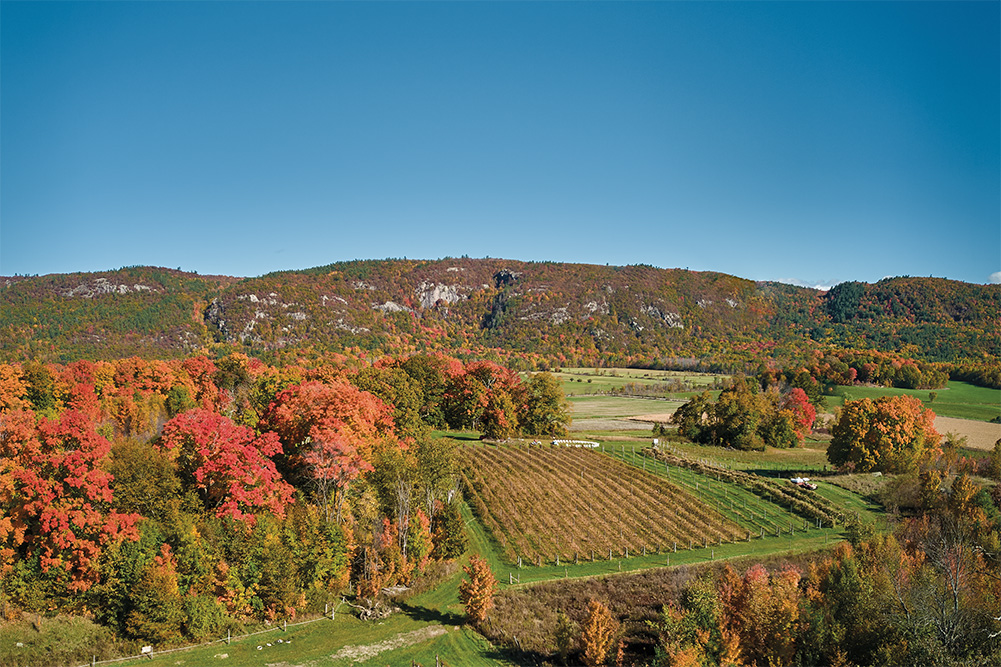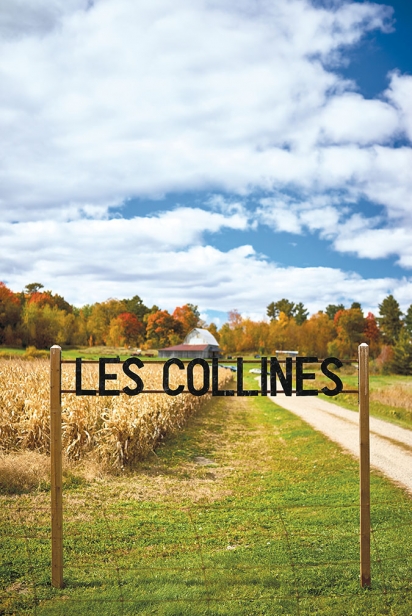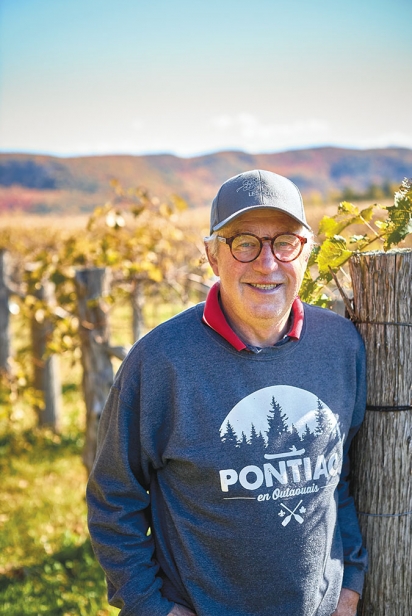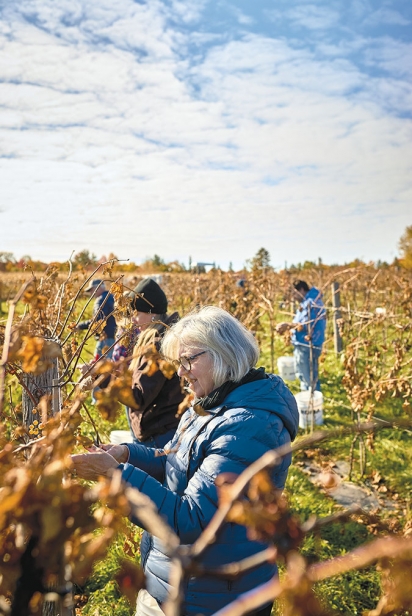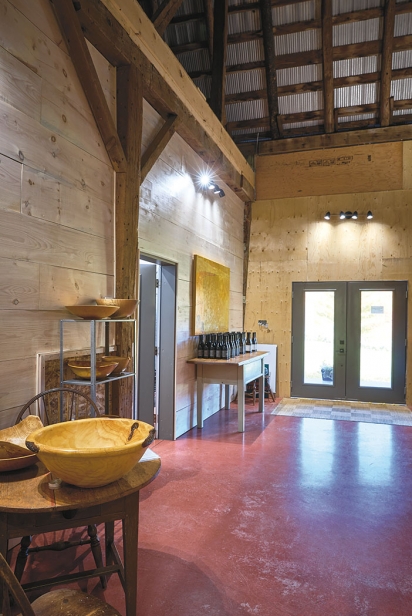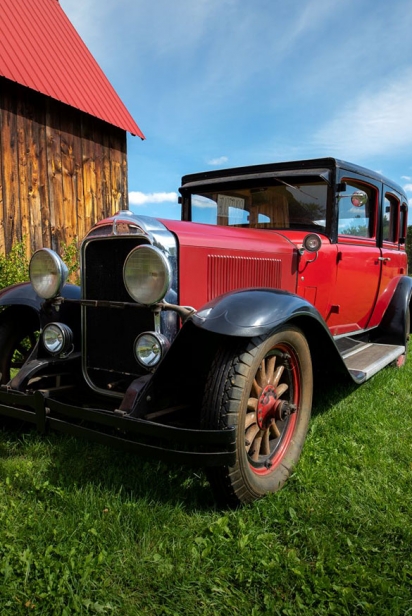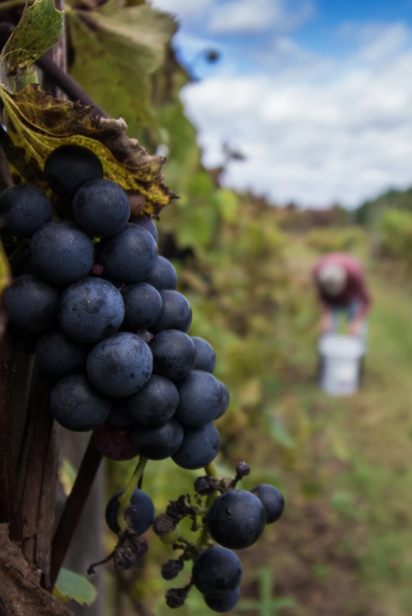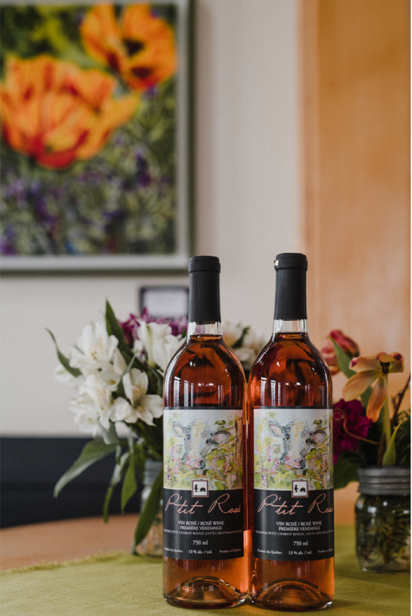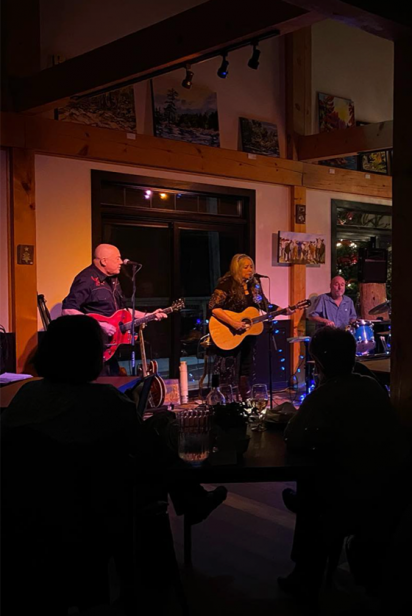Wine-Making in La Belle Province's Pontiac
Forty years ago, traditional wine-making countries were limited to old-world producers such as France, Italy, Spain and Portugal for connoisseurs. At a push, adventurous drinkers might consider wines from Germany, Austria, Greece, Argentina, Chile and California. Australia and New Zealand followed shortly thereafter. But Canada? Never.
We’ve all witnessed the steady growth of this industry across the country, and now some Canadian wines could grace the finest table. Mostly, those were the domain of Ontario and British Columbia, but now the Pontiac, just a 45-minute drive to the west of Gatineau, can join the list of wine-growing regions in Canada.
Thanks to ongoing innovative grape hybridization for cold climates growing out of the University of Minnesota, and a willingness from growers to embrace what the terroir can offer here, three small wineries can now be found between Ottawa and Shawville, Que.
At Vignoble les Collines, Martin Dandenault and his wife, Lisanne Binette, tend to six acres of vines that they have planted on a picturesque hill just beneath the Gatineau Park escarpment. For 40 years, the couple owned and ran a horseboarding facility on the edge of Gatineau, tending to their vines a 20-minute drive away. The 2021 season marked the end of Dandenault’s ownership of the horse business and the first bottled harvest from vines that have now been growing for 10 years on the 103-acre Luskville property. Vignoble Les Collines produces two red wines, two white wines and a rosé, all of which are a blend of grapes hardy enough for the region.
Frontenac red, white and gris grapes make up the majority of the couple’s vines, blended with St. Pepin, Petit Perle, La Crescent, Louise Swenson, Itasca and Maquette — “the baby cousin of the Pinot Noir grape,” Dandenault explains. “Frontenac has very high acidity, which is why one blends it with other grapes.”
Dandenault works with winemaker Jean-Paul Martin, from the Eastern Townships La Grange Hatley, a native of the esteemed Burgundy growing region in France. Hatley has helped Dandenault make dry wines — the whites have between one and 1.5 grams of sugar — that are aged up to nine months for the whites and 12 months for the reds.
None of the aging happens in oak. “I don’t like wood,” Dandenault says, “I believe it’s used to mask bad wines.”
The 2022 season was a particularly difficult one. For a start, the bears came out of the bush much earlier than usual and Dandenault reckons he lost 20 per cent of his grapes to them. Then there were the birds and the Japanese beetles, which also took their toll. Combined with a harsh winter that killed many of the primary buds, yields were down about 50 per cent.
While 2021 might have been his first vintage, he has been selling grapes for longer, to other wineries and the marc — or pressed leftovers — to 5ième Baron brewery in Aylmer and À La Dérive in Gatineau, “while I’ve been practising making wine,” he says. That wine, with whimsical labels created by then-local artist Carmen Ethier (who now lives in Montreal) is available at Gatineau restaurants Les Vilains Garçons (see story on page 19), Le Rituel at Le Sorcier and at Le petit bar à vin in Old Chelsea as well as La Boîte à Grains stores in Hull, Gatineau and Le Plateau. In an effort to reduce waste, Dandenault collects used bottles from these restaurants to re-use.
“There’s no recipe to start a vineyard,” he says. “It takes a lot of patience and at least 10 years of investment.”
Les Vignoble Collines
415 Chem. Crégheur, Luskville, Que.
www.vignoblelescollines.ca | 819.684.2403 | @vignoblelescollines
Wines and wheels
Just a few kilometres further up the road, Domaine de Pontiac Village is a vineyard and a vintage car museum. Both the wine-making operation and cars from the days when horsedrawn vehicles and the first motorized ones shared the road, are housed in a re-constructed heritage barn. The barn, which owners Pavel Khol and Maude-Emmanuelle Lambert moved over three weekends on a hay wagon from a nearby property and spent two years rebuilding, offers a tasting room with views of the Pontiac countryside beyond. The winery has been open to the public since 2016 and Khol has been collecting historic cars for at least 20 years. Examples include a Ford Model A from 1903 and a 1906 Renault.
Lambert, who is an historian by training and a senior analyst at Library and Archives Canada, and Kohl, a who is a development officer with Global Affairs Canada, planted their first vines in the spring of 2007.
“Our idea was to shape the landscape,” says Khol of the 1880s 50-acre farm on well-draining, sandy loam soil. Today, five of these acres are covered in grapes.
A vintage vibe fills the air at Domaine du Pontiac — be that through the cars, the bottle labels, which feature historical photographs of the region, the heritage barn or the carved wooden signs at the end of the vine rows that signal the varietals, which include Seyval Blanc, Marquette, Frontenac Noir and Gris, Ste. Croix, St. Pepin and Sabrevois.
The couple produces three wines, a total of about 3,000 bottles annually — a red, a white and a rosé, with the help of Jean-Paul Martin, the same winemaker Martin Dandenault uses at Les Collines. In this place, however, he’s working with oak. Khol and Lambert age their red — a blend of Frontenac, Marquette, Ste Croix and Sabrevois — for up to eight months in oak barrels. It’s a deep coloured wine, redolent with black fruits, softened by oak. Among others, the couple has a barrel made by cooper and skateboard maker Pascal Plamondon from the Eastern Townships, fashioned with oak from their own farm.
Domaine du Pontiac Village wines are available at the farm from May to October and at Broue Ha Ha boutique in Gatineau.
Domaine de Pontiac Village
1259, Chem. du Cimetière, Quyon (Pontiac), Que.
www.domainepontiac.com | 819.458.3628 | @vignobledomainepontiacwinery
The grapes of love
Little Red Wagon Winery is spread across six acres of sunny sandy loam hillside just outside Shawville, Que. When owners and high-school sweethearts Jennifer Dale and Scott Judd planted their first 500 vines of red grapes in 2010, they had no idea what they were doing. “It was my project,” Dale says, “and I just thought it would be interesting. We’d been thinking about doing U-pick fruit, but were talked out of it so planted vines instead.” However, some blackberries, raspberries and table grapes still grow on the farm.
After the initial 500 plants, they tried planting 1,000 from sticks. But only 100 took root. Things weren’t off to a great start. However, Dale persevered, trailing her son around behind her in his little red wagon — hence the name of the winery — and Judd kept busy with his dairy operation, milking 150 cows twice daily.
The vines began to grow and produce grapes, however, the wine-making part of it wasn’t going too well. In 2015, their oenologist told them to dump the wine they’d made.
“He asked us what we were hoping to achieve with our wine,” recalls Judd. “When we explained that we aspired to produce something worth drinking, well, then he told us to pour it out.”
Yet pretty quickly things got serious. In 2016, the winery had its first harvest and produced 5,000 bottles. That same year, Dale and Judd started working on the tasting room, winemaking facility and restaurant to create an airy, contemporary barn. This opened in December 2017. By February 2018, they’d sold out of their “premier vendage” those first bottles from the 2016 harvest. In 2021, they harvested 33 tons of grapes in six weeks and produced 20,000 bottles. Due to the brutally cold months of January and February, they will have probably only produced 2,000 litres in 2022.
A busy schedule of weekly live music events — Madison Violet performed in the summer of 2022 — wine-tasting and a seasonal, local menu prepared by 23-year-old daughter Emma, keeps the barn tasting room hopping. Menu choices include lamb from just a mile down the road, local cheeses and grass-fed meat from Brylee Farms in Thurso. The walls are decorated with paintings by local artists, all of which are for sale. Dale is herself an artist who paints the wine bottle labels and has produced large-scale florals for the bathroom walls. In 2019, she also planted a cutting garden and now offers seasonal flower bouquets by subscription.
Little Red Wagon’s P’tit rouge, P’tit blanc and P’tit rosé are available at Brou Ha Ha, the Marché de l’Outaouais, Kelly Metro on Le Plateau and grocery stores in Shawville, as well as at the winery.
Little Red Wagon Winery
C-165 Calumet Rd., W., Shawville, Que.
www.littleredwagonwinery.com | 819.744.0842


